A new report released by UNAIDS in the month of July shows that the HIV incidence among adolescent girls and young women (ages 15-24) is alarmingly more than three times higher than that among their male counterparts in many countries in sub-Saharan Africa. This stark disparity, revealed in the UNAIDS Report titled “The Urgency of Now: AIDS at a Crossroads — 2024 Global AIDS Update,” demands our immediate attention and action.
Women and girls in sub-Saharan Africa accounted for a staggering 62% of all new HIV infections, while over 73% of new infections in other regions occurred among men and boys. Every week, 4,000 adolescent girls and young women aged 15-24 globally became infected with HIV in 2023, with 3,100 of these infections in sub-Saharan Africa. Although new HIV infections among children have declined by 62% since 2010, progress has stalled in recent years. The 95–95–95 targets for children ages 0-14 were 66%, 86%, and 84%, respectively, compared to 91%, 91%, and 94% among women.
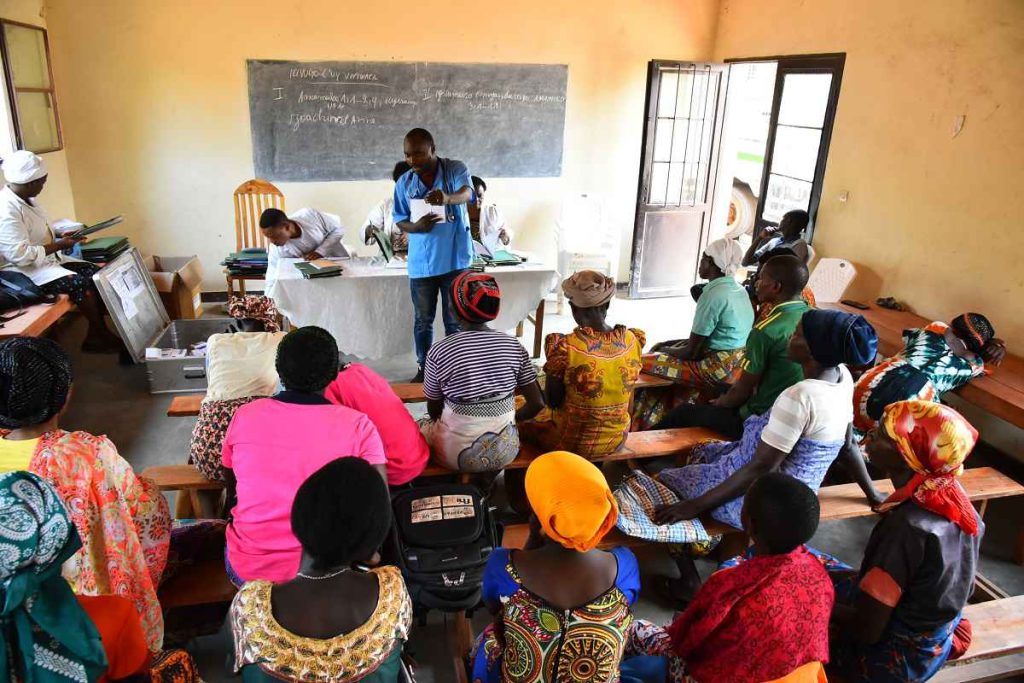
Gender inequalities, differential access to service, and sexual violence increase women’s vulnerability to HIV, and women, especially younger women, are biologically more susceptible to HIV. According to UNAIDS an estimated 1.3 million people became infected with HIV in 2023, three times more than the target of fewer than 370 000 by 2025. While there has been marked progress in sub-Saharan Africa, for the first time, in 2023 more than half of the new HIV infections occurred outside of sub-Saharan Africa. Young people in particular continue to face barriers to accessing HIV and sexual and reproductive health services, including age-appropriate comprehensive sexuality education. Over a third (36%) of older adolescents, ages 15-19 years, living with HIV were not on treatment in 2023. These disparities highlight the urgent need for targeted interventions and renewed efforts to combat HIV/AIDS.
UNICEF calculates that 34 million girls in sub-Saharan Africa are out of secondary school. According to the Global Education Monitoring (GEM) Report 2023, in all regions in Africa, there are more girls out of school at the secondary level than boys, with gender disparities worsening as children move up to higher levels of education in favor of boys over girls. In sub-Saharan Africa, less than half of adolescent girls complete secondary education, their percentage standing at 42% and there has been no progress at all in closing this gap in the past 20 years. Sub-Saharan Africa is the region furthest from parity at the expense of girls, with no progress since 2011 at the lower secondary level and since 2014 in upper secondary.
The UNAIDS report states that “The global AIDS response is at a crossroads,” with success or failure hinging on how “religious leaders and faith communities can challenge societal norms, attitudes, and practices that perpetuate inequalities, such as sexual and gender-based violence or stigma and discrimination.” Faith-based organizations, which provide 30 to 70 percent of health care services in certain African countries, have significant reach and influence. However, stigma and discrimination remain major obstacles to eradicating AIDS as a public health threat by 2030, particularly in these settings.
Additionally, the report reveals that in 15 out of 19 countries reporting to UNAIDS in the past five years, over 10 percent of people who inject drugs avoided health-care services in the past year due to stigma and discrimination.
In Africa, AJAN, a network of Jesuits and their collaborators in sub-Saharan Africa, has been actively addressing the challenges posed by HIV and AIDS. AJAN works with 20 grassroots centers across 18 countries, providing a range of services including pastoral counseling, home-based care, income-generating activities, and educational, medical, and nutritional support. Crucial to their efforts is the prevention of HIV, which they promote through value-based education, prevention of mother-to-child transmission, and testing services, particularly focusing on young people.
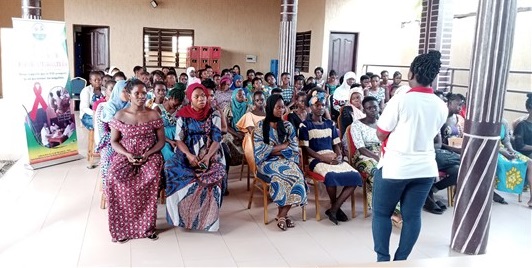
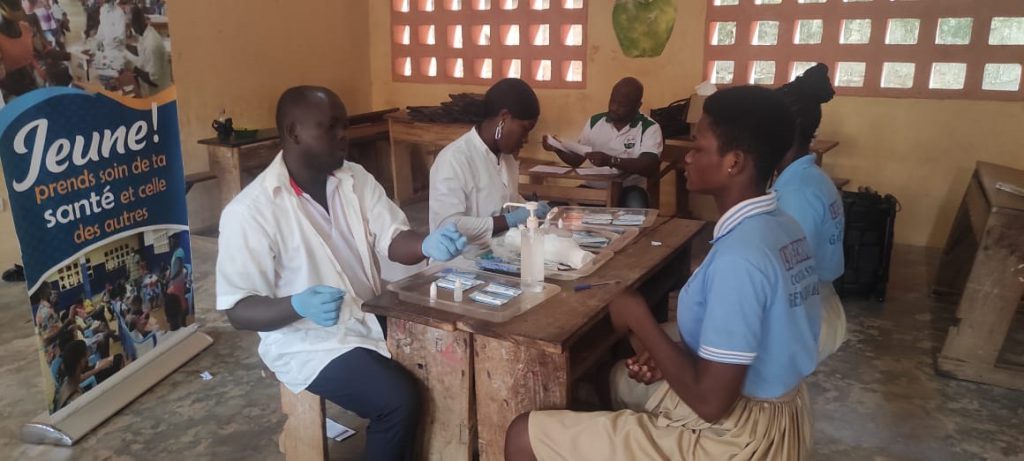
Centre Sociaux Loyola (CSL) in Togo one of the AJAN grass root centres accompanies vulnerable persons, young women, youths and Person Living with HIV (PLHIV) by undertaking AIDS awareness, sensitization and HIV tests.
Fr. José Minaku SJ., President of the Jesuit Conference of Africa and Madagascar (JCAM), during the AJAN 2023 General Assembly said, “Despite the adversity we face, such as the devastating effects of HIV/AIDS and other health problems caused by extreme poverty, we stand firm in our determination to find solutions. Our resilience is a testament to our determined spirit, and we will persevere. This fight calls on “human hearts to open, not to remain behind intellectual and cultural certainties” (Jean Vanier, Preface to Fragility). We must consider the objective data to imagine new strategies and succeed. Our journey continues despite the obstacles that lie ahead. The demand for our services grows, and we must remain resolute in pursuing this cause. Let us be a beacon of hope, shining a light through the darkness and always keeping our ultimate goal in sight.”
While reflecting on the AJAN strategic plan 2021-2025, during the AJAN Assembly 2024, Fr. Ismael Matambura SJ, AJAN Director said, “Young women and girls are the most affected among these individuals, and young people also account for a significant portion of the new HIV infections. Our mission is to make sure we are protecting the youths and we can support what they are doing in terms of creativity and initiative. It is not an option but an obligation for us to focus on the youth.”
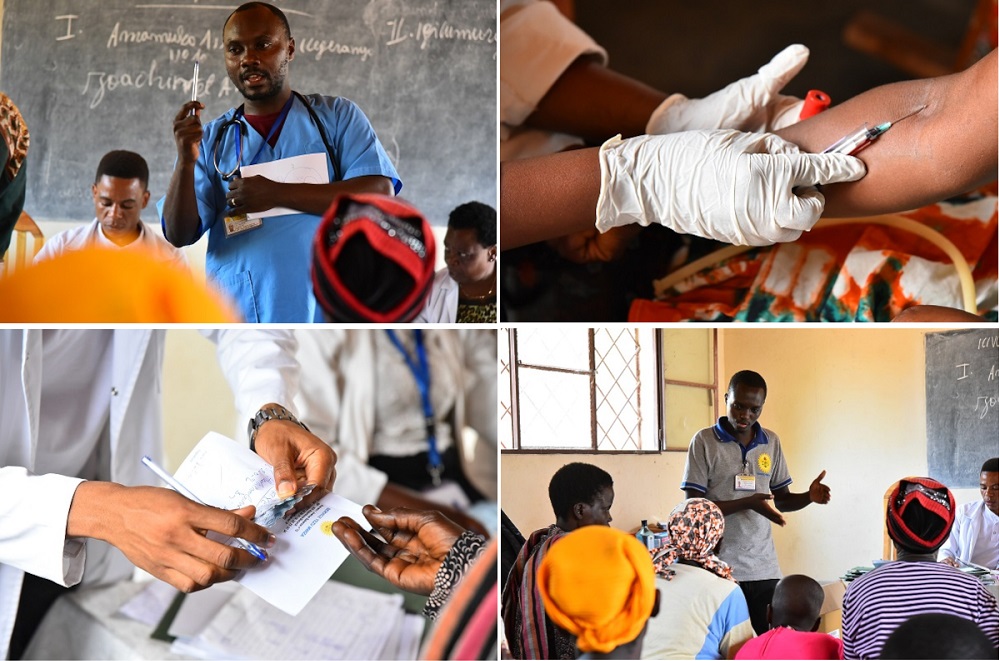
Today we are reminded of Pope Francis’s emphasis on solidarity in Fratelli Tutti, “caring for vulnerability, for the vulnerable members of our families, our society, our people; while referring to the parable of the good Samaritan; The parable eloquently presents the basic decision we need to make in order to rebuild our wounded world. In the face of so much pain and suffering, our only course is to imitate the Good Samaritan. Any other decision would make us either one of the robbers or one of those who walked by without showing compassion for the sufferings of the man on the roadside. The parable shows us how a community can be rebuilt by men and women who identify with the vulnerability of others, who reject the creation of a society of exclusion, and act instead as neighbours, lifting up and rehabilitating the fallen for the sake of the common good. At the same time, it warns us about the attitude of those who think only of themselves and fail to shoulder the inevitable responsibilities of life as it is.
While the global AIDS response is at a crossroads; AJAN continues to instill hope to those who feel despair, thereby offering hope to Africa as a whole. In collaboration with our partners, we continue to reach those that are in the margins and those who look upon us for help. We are called to deepen our bonds with the youth and the vulnerable, embracing resilience and optimism for a hope-filled future.
Click to view the UNAIDS 2024 Fact sheet
Click to view the UNICEF HIV Regional Statistics 2024
By, Dennis Owuoche,
AJAN Communications Officer.

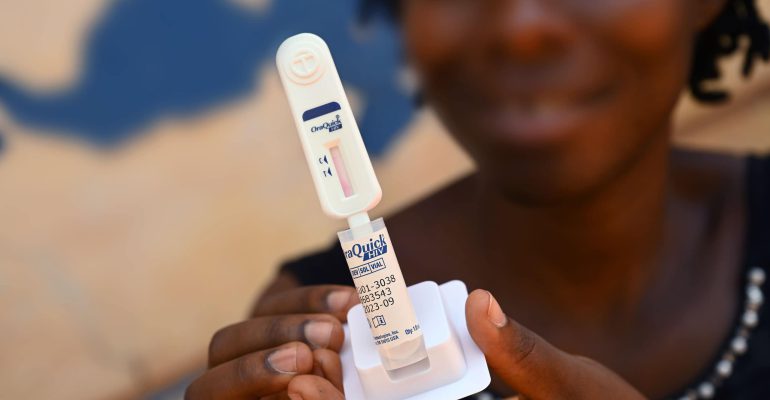
Comments are closed.